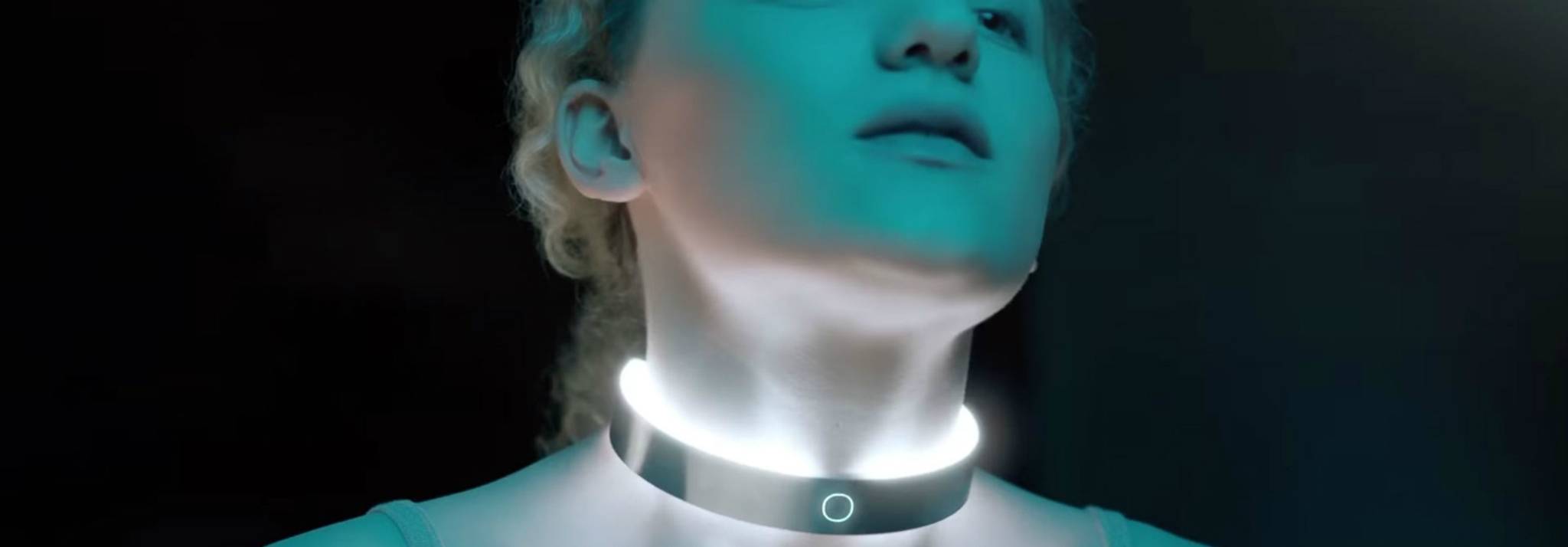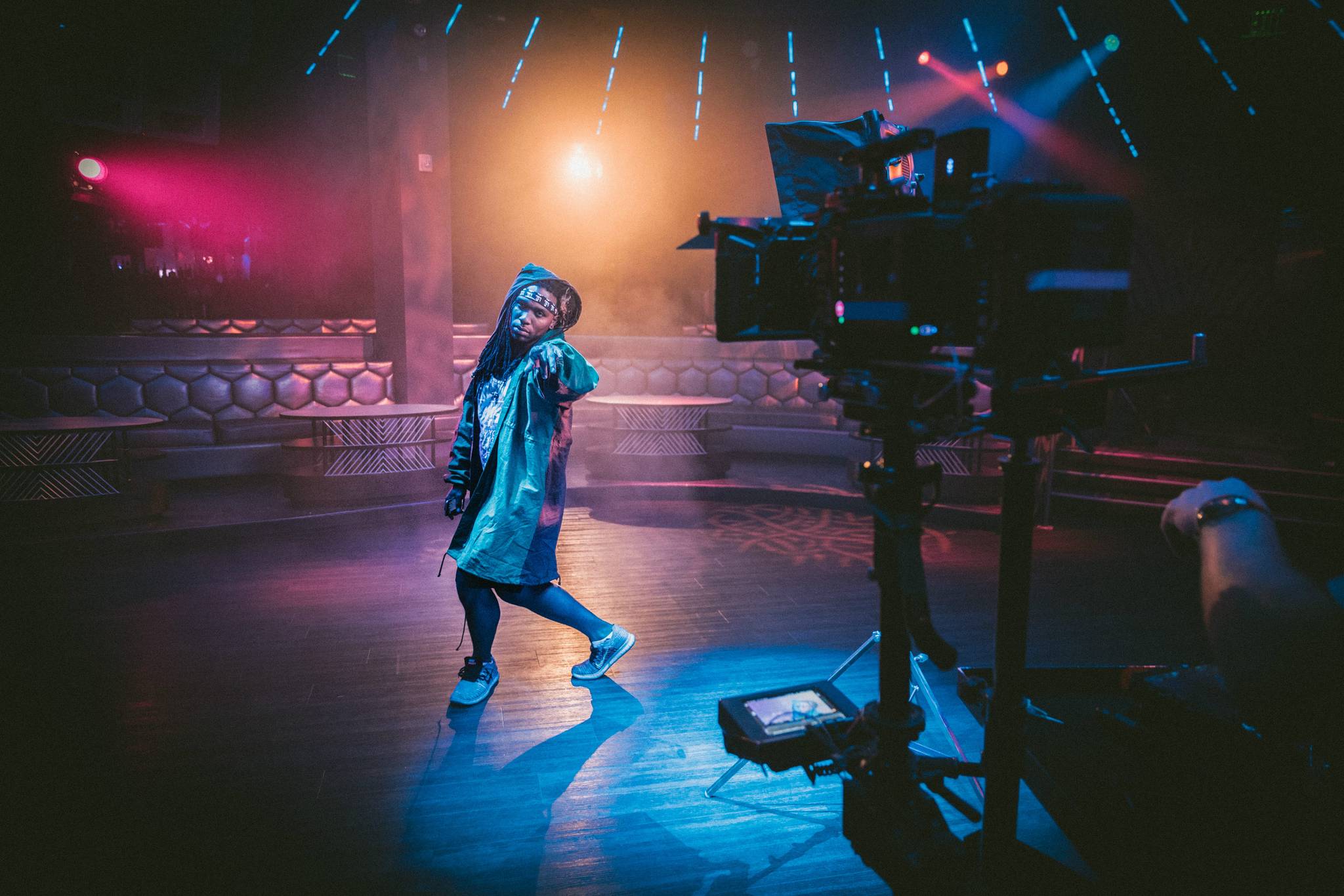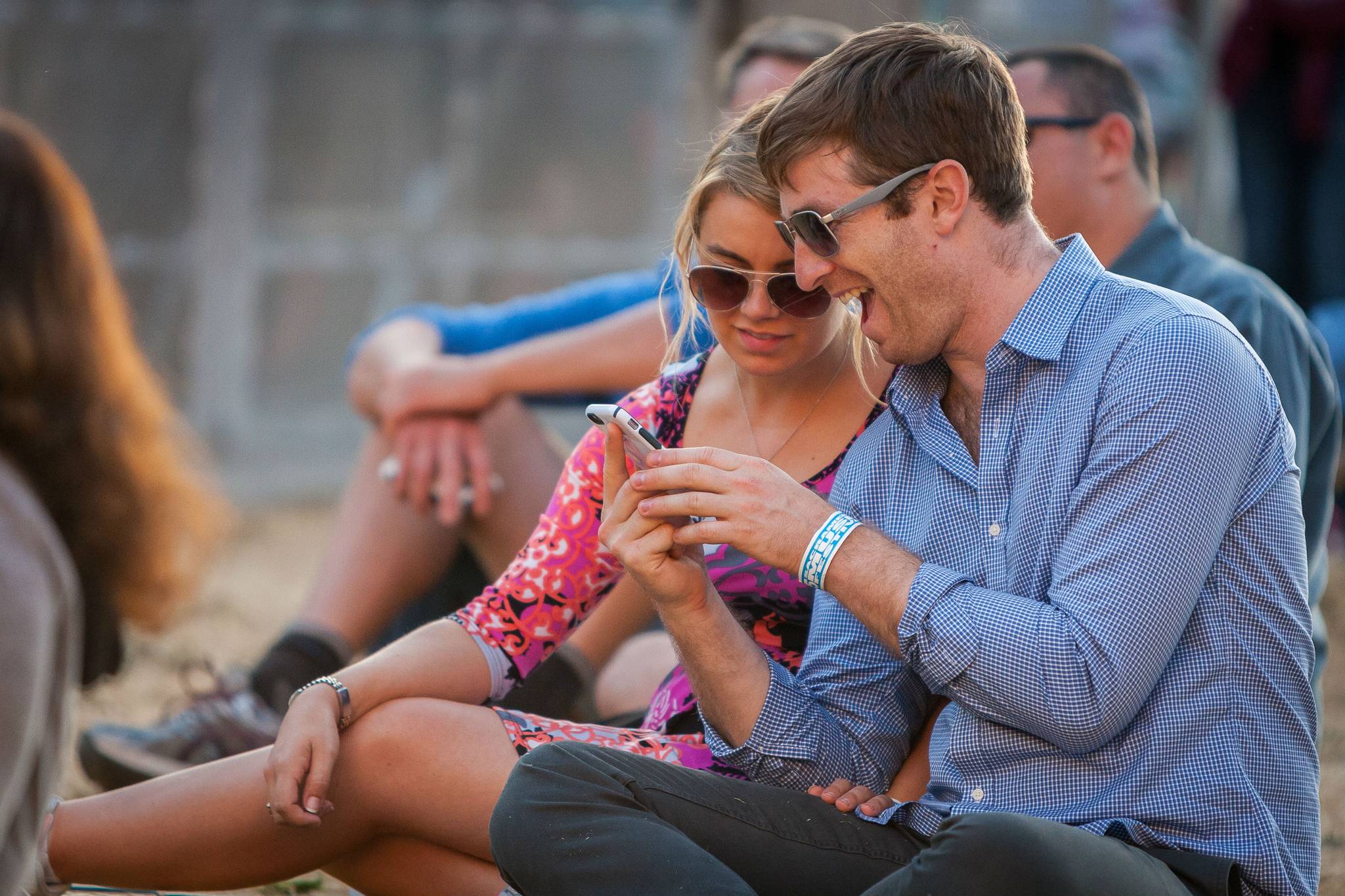
The idea of VR tech enhancing video games is gaining popularity among Britons, so it’s easy to see why Channel 4’s advert for the AzanaBand – a sensory gaming device – proved to be a hit. The plot twist is that the product only exists as part of a viral campaign for a TV show called Kiss Me First. We explore the insights behind the ad, and explain why tapping into insecurities about emerging tech is a sure-fire route to virality.
Channel 4 is promoting the ‘the world’s first sensory gaming device’ called the AzanaBand. It’s a Bluetooth device that goes around the neck and amplifies real-life sensations such as happiness, fear, and pain by connecting with VR consoles. Although the spot had some believing it was a legitimate product – it came complete with a convincing website and demo from YouTube channel Hat Films – it doesn't actually exist.
Rather, it’s an ad promoting a six-part dystopiandrama called Kiss Me First, based on a novel by Lottie Moggach. The plot follows a young girl, Leila, who becomes addicted to an online video game where she meets her polar opposite, Tess. When Tess disappears, it’s up to Leila to uncover what’s happened to her. “What do we become when we can be whatever we want? Our story tackles this question from every angle – in its most positive, empowering sense and at its darkest and most terrifying,” explains Simon Maxwell, Channel 4’s head of international drama.
This isn’t the first time Channel 4 has teased a new TV series with a fake product. In 2015, the channel co-produced a promo for Humans that featured Sally – a lifelike robotic housekeeper that helped with cooking, cleaning, and family chores. The AzanaBand is mirroring a similar technological anxiety in a bid to drum up interest ahead of the series, although there’s no set launch date.
Darker visions of the future have taken hold over young Britons’ imaginations; a 2018 YouGov survey found that one in four Britons aged 18-24 were interested in using AR tech similar to what was used in Black Mirror. By tapping into people’s 'future-facing' fantasies, as well as their anxieties around what might happen if those fantasies are realised, the AzanaBand is causing a social media stir that plays on a similar mechanism to how fake news spreads. “[Fake news] preys on something we're angry or anxious about and we can't help but share with someone else,” explains Jonah Berger, author of Contagious: Why Things Catch On, “because we either want to relieve that anxiety or we want to take an action to solve that problem.”
Hannah Elderfield is a Senior Behavioural Analyst at Canvas8, which specialises in behavioural insights and consumer research. She has worked with global clients including Facebook, BelVita, Wagamama, the UK Government, the FCO and Superbrands. Outside of work, she loves indulging in bottomless brunches, trashy TV shows and walking her golden retriever Baloo.



